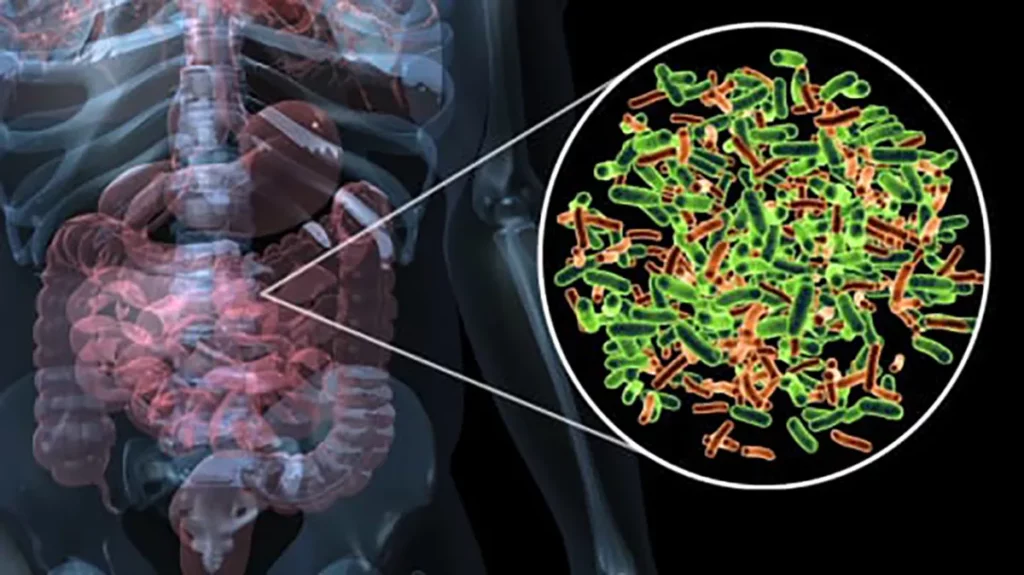Your digestive system is home to trillions of bacteria — 10 times the number of
your human cells. Don’t be alarmed. That’s a good thing. While some bacteria cause disease, the bad guys in your gut are largely outnumbered by colonies of friendly bacteria or resident flora. Keeping your gut flora happy translates both to good digestive health, and to your overall well-being.
Gut Flora and Digestion
The human gastrointestinal tract contains around 400 bacterial species. Your friendly gut bacteria have a lot of work to do to maintain your health. They help you digest food and metabolise nutrients.

Implications for Health
A lot of factors can influence the vitality of your gut flora. Stress, age, poor diet, and environmental circumstances can disrupt your healthy microbes.
Treatment with antibiotics kills off good bacteria as well as bad and may result in antibiotic-related diarrhoea. Repeated antibiotic use can wreak havoc with your gut flora’s ability to fight off common bacterial infections, like Salmonella food poisoning.
A weakened gut may manifest first in digestive issues, like constipation and diarrhoea and in more severe cases even lead to obesity.
So how do you keep your gut flora happy and healthy? That’s where Probiotics come in. Probiotics are beneficial live microorganisms that act like the healthy bacteria in your gut. Eating foods that contain probiotics or taking probiotic supplements can help your gut flora repopulate so they can fend off pathogens.
Some of the best sources of probiotics include yogurt, buttermilk, miso, tempeh, fermented milk, and soy beverages. Traditional Indian foods such as dahi, idlis and dosas, dhoklas and achar are also a good source of probiotics as they are all made of fermented ingredients. If probiotic foods are unappealing, you could also use supplements. But because different health conditions respond to different strains of microorganisms, consult a nutritionist or doctor about which one would be best for you.
The Role of Prebiotics
Although they sound similar to probiotics, prebiotics have different origins, functions, and dietary sources.
Prebiotics are, generally, carbohydrates that are not digested in the body. Prebiotics resist digestion, traveling intact to the colon where they ferment and feed the healthy microflora.
QNET’s Nutriplus Fibrefit is extracted directly from Gum Acacia which is a 100 % natural dietary fibre and a powerful, potent prebiotic. Prebiotics are a food source for the beneficial bacteria in our gut. It helps these bacteria to proliferate and boost the immune and digestive systems, absorb minerals and get rid of harmful fibres as well as other useless substances. Dietary fibres can be classified into soluble and non-soluble. Soluble fibres are fermented in the gut, which gives it prebiotic properties and helps the healthy bacteria survive in the gut. FibreFit is one of the richest sources of natural prebiotics as it contains 86% prebiotics.
Prebiotics and probiotics work side by side to help maintain a healthy gut.
Talk to a doctor or nutritionist about the potential benefits for a specific condition or for your overall well-being.








